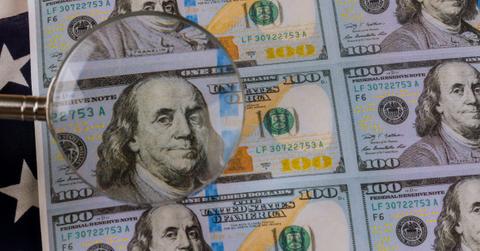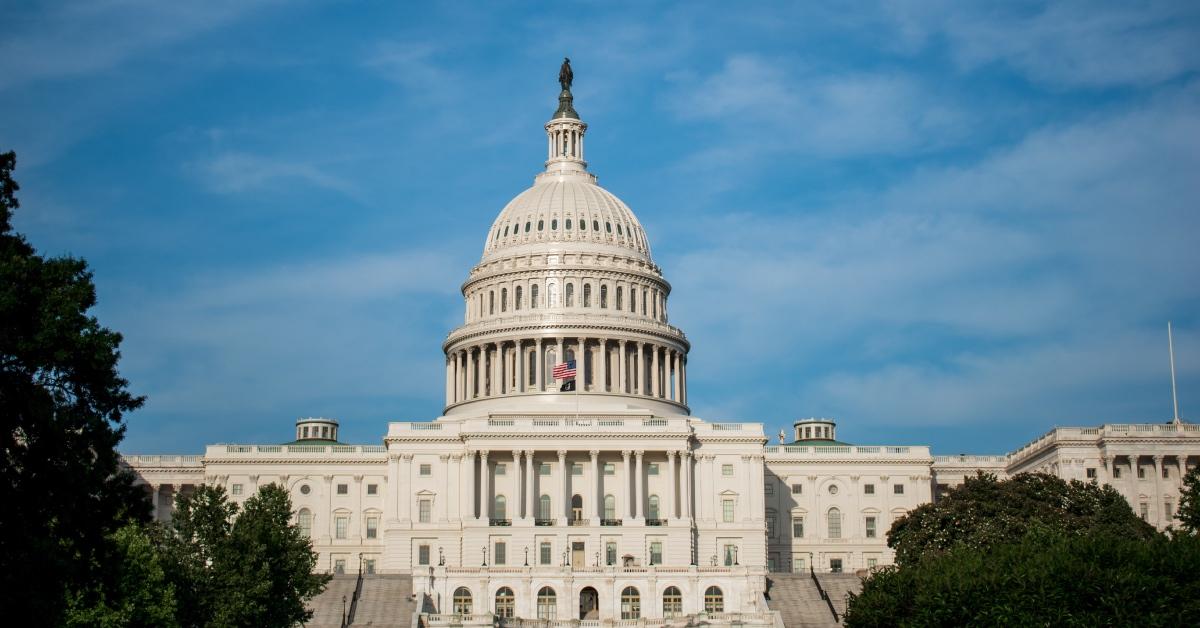Why Defaulting on National Debt Would Spell Disaster for the U.S.
If the U.S. were to default on its national debt, it could face catastrophic consequences, including a global financial crisis. Here's what we know.
April 10 2023, Updated 1:42 p.m. ET

The U.S. debt ceiling is always rising. The government has never defaulted on debt because Congress has continued to raise the debt ceiling over the course of the nation's history. Currently, the deficit is almost $32 trillion.
Despite the U.S. being able to dodge defaulting on its debt on multiple occasions, many still can't help but ponder "what if." In early 2023, Congress was asked once again to pass a debt ceiling increase, otherwise the Congressional Budget Office estimates the government will default by summer 2023, CNBC reported.
With that in mind, here are a few ways the U.S. could potentially default on its debt and the consequences that would follow.
How does the U.S. government default on its debt?

The U.S. government has been at risk of defaulting on debt numerous times.
With an ever-increasing national deficit, the U.S. could default on its debt in one of two ways.
The first has to do with Congress, which has threatened to cap the debt ceiling and force the U.S. government into default. If there's a firm cap and the U.S. exceeds it, a default would be automatic.
The second has to do with interest. If the U.S. stops paying the interest on its debt, the government automatically defaults.
What would happen if the U.S. defaults on its debt?
The U.S. deficit often feels like an arbitrary thing considering it's always rising. However, it's anything but arbitrary. If the government were to default, tough consequences would ripple out on a global scale. Here are a few the U.S. could face in the event it defaults.
Interest rates would soar. Currently, the federal interest rate is extremely low while the economy recovers from the COVID-19 pandemic. However, a U.S. debt default could shift this far into the other direction. It would cost businesses, governments, and loan recipients of all kinds a lot more to borrow money.
- The value of the U.S. dollar would take a beating. Not only that, but the U.S. dollar would lose its place in the list of global world currencies. Meanwhile, investors would hop on other world currencies like the euro or yen.
- U.S. import prices would rise through the roof, which would make it extremely expensive to live in the country. Inflation would hit hard and fast.
- Any government employee would be out of luck for their paychecks. Also, any citizen receiving or set to receive Social Security, Medicare, and Medicaid benefits would lose those programs entirely. Payments on student loans, tax returns, and government facilities would shut down. Unlike a government shutdown that impacts only non-essential programs, the impacts of a U.S. debt default would be far-reaching.
- U.S. credit rating downgrades can tank stock markets too. American wealth and stability in many forms would be in turmoil.
Will the government keep raising the debt ceiling?
The debt ceiling has been raising your entire life, so it's understandable if you think it can go on forever. However, the government is fallible. If spending continues to exceed available capital, the nation will have a big problem on its hands.
How can the U.S. avoid defaulting on its debt?
The only way the U.S. can avoid defaulting on its debt is to minimize the budget deficit. President Biden's corporate tax proposals within the nation and globally could put a massive dent in the deficit over time. If anything, it could help the deficit from increasing at such a rapid rate. Spending during the COVID-19 pandemic has been huge, but these programs aren't forever.
Until then, the government will just have to keep paying its interest and working with Congress to avoid defaulting.
